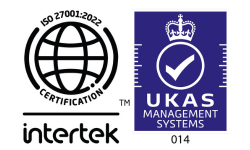Employee retention is something that can often be overlooked for businesses especially when aiming to maintain productivity and reduce company costs. High turnover rates can result in significant expenses related to recruitment, onboarding, and training, as well as the loss of valuable institutional knowledge. Ensuring that top talent remains in your company requires a strategic approach that focuses on employee satisfaction, career growth, and effective management. Below we have put together a guide on how employers can retain their best employees for their business.
1. Provide Competitive Compensation and Benefits

One of the primary reasons employees leave is dissatisfaction with compensation. Ensuring that your salary packages are competitive within your industry is key to retaining top talent. This doesn’t just mean offering higher pay than competitors, but also providing a comprehensive benefits package that meets the needs of your employees.
This could mean offering flexible benefits that allow employees to choose the perks that suit their lifestyle, such as health insurance, retirement contributions, and paid leave options. Additionally, include modern benefits like mental health support, wellness programs, and remote work flexibility. A good benefits package increases job satisfaction and loyalty, reducing the likelihood of employees seeking better opportunities elsewhere.
Annual reviews of employee benefit structures are essential to ensure that wages and benefits align with market trends. If employees feel undervalued compared to their peers in similar positions, they may be tempted to seek employment elsewhere.
2. Foster Career Development and Growth Opportunities
Employees, especially high performers, seek career growth. A lack of professional development opportunities is often cited as a reason for leaving a job. Offering clear career progression paths within your company, including promotions, raises, or new challenges, can help employees feel motivated and valued.
Provide training and development programs tailored to employees’ individual needs and goals. Whether through mentorship programs, on-the-job training, or access to industry-specific courses and certifications, enabling employees to upskill benefits both the individual and the company. Regularly review and discuss career paths during appraisals, ensuring employees know what steps they need to take to advance within the organisation.
Additionally, investing in leadership development for high-potential employees can help you groom future managers and leaders from within. Internal promotions are often more cost-effective than external hires, and employees tend to feel more loyalty towards a company that invests in their future. If you’re looking to upscale your business or need help with employee career development programs then speak to a HR Consultant with PayEscape and see what growth opportunities are available for your business.
3. Promote a Positive Company Culture
A company’s culture can make or break employee retention efforts. Creating a positive, supportive, and inclusive work environment brings a sense of belonging and encourages employees to stay long-term. Company culture is not just office aesthetics or employee events; it’s how employees are treated, how they collaborate, and the company’s values.
Focus on creating a workplace where employees feel respected and heard. This starts with fostering open communication, where employees can voice their concerns and ideas without fear of reprisal. Establishing a feedback-rich culture helps in addressing issues before they escalate, allowing management to make informed decisions that benefit everyone.
Additionally, ensure your company actively promotes work-life balance. Overworking employees can lead to burnout, and without balance, even the most dedicated staff may look for jobs with a more manageable workload. Encourage flexible work arrangements where possible, such as remote work or adjusted schedules, to help employees maintain a healthy balance between their personal and professional lives. At PayEscape we offer HR management software to employees that need an extra help within their business, our software also allows integrated HR and payroll to be fully managed or outsourced. You can book a free demo online here.
4. Recognise and Reward Employee Contributions
Recognising and rewarding employee efforts is essential in retaining top performers. Employees who feel appreciated are more likely to remain engaged, motivated within the company. Recognition can take many forms, from verbal praise and public acknowledgment to monetary rewards or promotions.
Implement an employee recognition programme that allows for regular feedback and rewards for exceptional performance. Peer-to-peer recognition systems can also be beneficial, encouraging colleagues to appreciate one another’s efforts. These systems can create a more collaborative environment, where employees feel part of a larger team working towards shared goals.
Additionally you could consider offering performance-based bonuses, profit-sharing schemes, or other financial incentives to reward hard work and dedication. Tangible rewards tied to performance will motivate employees to continue contributing to the company’s success.
5. Improve Employee Engagement
Employee engagement refers to the emotional commitment employees have to their organisation. Engaged employees are more productive, more likely to stay, and tend to go the extra mile for the company. To retain your best employees, you need to create an environment that nurtures engagement.
Start by regularly checking in with employees to ensure they feel satisfied in their roles. Conduct employee engagement surveys to gather feedback on areas that need improvement. Make sure to act on this feedback; employees who see their suggestions implemented are more likely to feel valued.
Encourage involvement in decision-making processes, particularly on matters that affect their work. When employees are given autonomy and feel trusted to make decisions, they are more likely to stay committed to the organisation.
Building strong relationships with employees is another aspect of engagement. Managers should take the time to understand their team members’ strengths, weaknesses, and motivations. This can help tailor assignments that play to their strengths and offer personal satisfaction, improving long-term commitment.
6. Provide Effective Management and Leadership
The relationship between employees and their managers significantly impacts retention rates. Poor management is a common reason why employees leave their jobs. On the other hand, employees who feel supported and respected by their managers are more likely to stay loyal to the company.
Ensure that managers are trained to lead effectively. This includes offering leadership training, communication workshops, and regular reviews to improve managerial performance. Managers should be approachable, listen to their employees’ concerns, and provide constructive feedback.
Encouraging managers to adopt a coaching mindset can also improve retention. By helping employees develop their skills and advance their careers, managers contribute to both the employees’ success and the company’s growth.
Good managers also lead by example. They demonstrate accountability, respect, and a commitment to the company’s goals. When employees see this type of leadership, they are more likely to stay engaged and committed.
7. Monitor Workload to Prevent Burnout
One of the key challenges in retaining high-performing employees is managing workload. Talented employees are often given more responsibility, which can lead to burnout if not handled properly. Burnout can cause disengagement, reduced productivity, and, ultimately, employee turnover.
Offer support to employees who may be struggling with their workload. This could include reallocating tasks, providing additional resources, or offering time off to recharge. Regularly check in with employees to assess their stress levels and workload capacity.
By maintaining a manageable workload, you reduce the risk of burnout, making it easier for employees to remain productive and engaged. Employees who feel supported and know their well-being is a priority are more likely to stay with the company long term.
Sustaining Business Success
Employee retention is vital to sustaining business success. By providing competitive compensation, fostering career development, promoting a positive culture, recognising contributions, and offering effective management, you can create an environment where your best employees want to stay. Additionally, paying attention to workload and preventing burnout ensures that your top talent remains engaged and productive.
HR and Payroll Software to Retain Employees
In addition to the strategies above, integrating HR and payroll software, HR consultancy services, and time and attendance solutions can help business owners retain their best employees. Here’s how these tools and services can benefit your organisation:
1. HR Software
HR software simplifies and automates administrative tasks, freeing up HR teams to focus on strategic initiatives like employee engagement and development. With features like performance tracking, HR software allows organisations to identify high-performing employees and address any performance issues proactively.
Feedback systems built into the software enable open communication between employees and management, fostering a culture of transparency. Additionally, integrated training modules support continuous learning and career progression, enhancing employee satisfaction.
2. HR Consultancy Services
HR consultancy services provide expert guidance tailored to your organisation’s specific needs. Consultants can help design and implement effective retention strategies, ensuring your business remains competitive in attracting and retaining talent. For instance, they can conduct comprehensive employee satisfaction surveys to identify improvement areas and recommend actionable solutions.
HR consultants also assist in developing competitive compensation packages, drafting clear company policies, and ensuring compliance with employment laws, reducing the risk of disputes or dissatisfaction.
3. Payroll Software
Accurate and timely payroll processing is a cornerstone of employee satisfaction. Payroll software eliminates errors by automating calculations, ensuring employees are paid accurately and on time. This reliability reduces potential frustrations related to salary discrepancies.
Many payroll systems also provide employees with self-service portals, granting them easy access to payslips, tax documents, and leave balances. Integration with other HR systems further enhances efficiency and provides a seamless experience for employees.
4. Time and Attendance Software
Time and attendance software offers precise tracking of employee work hours, ensuring fair compensation and reducing disputes over timekeeping. Leave management features simplify the process of requesting and approving time off, making it easier for employees to plan their schedules.
Additionally, analytics and reporting capabilities allow businesses to monitor attendance patterns, identify potential issues such as absenteeism, and address them proactively to maintain productivity.
Why Choose PayEscape’s Solutions?
PayEscape offers an integrated suite of HR, payroll, and time and attendance solutions designed to support businesses in retaining their top talent. Our software streamlines essential processes, freeing up time for strategic activities that improve employee satisfaction.
With PayEscape, you gain access to customisable tools tailored to your business needs, expert advice on compliance and employment laws, and a team dedicated to helping you create a thriving workplace. By choosing PayEscape, you not only enhance employee retention but also drive your organisation’s long-term success.
Retaining your best employees is not just about keeping costs down—it’s about building a team that is committed to the long-term success of your company. View our HR services at PayEscape and find out how HR consultancy can benefit your business today.
















